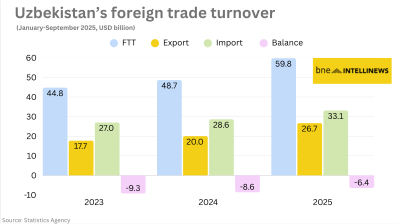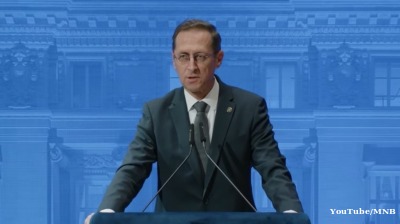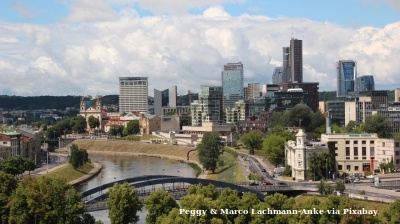The fertility rate slipped to 1.52% from 1.59% in 2021, ending years of growth.
In 2021, the country’s population fell by nearly 60,000, the steepest decline in 145 years as the number of deaths exceeded 150,000, the highest since the end of WWII in 1945.
The death toll from COVID-19 stands at close 49,000, which ranks Hungary among the top five in terms of death per 1mn inhabitants globally.
Hungary's population declined by some 1.2mn in the last four decades and should the current trends continue, the number could drop to 8.5mn by 2040 and to 6mn by 2070, according to experts.
The government has long advocated a "procreation over immigration" approach to deal with demographic decline and introduced a string of measures. Prime Minister Viktor Orban repeatedly said that family support programmes are his government's answer to migration.
A string of family support schemes from state grants to preferential loans to families helped to lift the fertility rate from 1.2% in 2010 to close to 1.6% in 2021. Even if this rate improves, the demographic situation is set to worsen as children of baby boomers (in Hungary they are called the Ratko generation, born between 1945-1953) are now past fertility age.
Population decline is already presenting challenges to the labour market and will put huge pressure on the pay-as-you-go pension scheme.
Data

Polish retail sales return to solid growth in September
Polish retail sales grew 6.4% year on year in constant prices in September, picking up from a 3.1% y/y rise in August, the statistics office GUS said.

Uzbekistan’s nine-month foreign trade nears $60bn
Export growth of 33% and import expansion of 16% y/y produce $6.4bn deficit.

Hungary’s central bank leaves rates unchanged
National Bank of Hungary expects inflation to fall back into the tolerance band by early 2026, with the 3% target sustainably achievable in early 2027 under the current strict policy settings.

Germany slowdown weighs on Lithuania’s export-driven manufacturing sector
Lithuania’s economy remains highly sensitive to the industrial cycle in Germany, its third largest trade partner.



